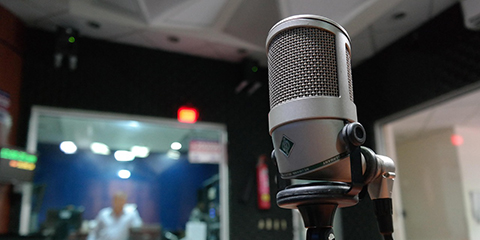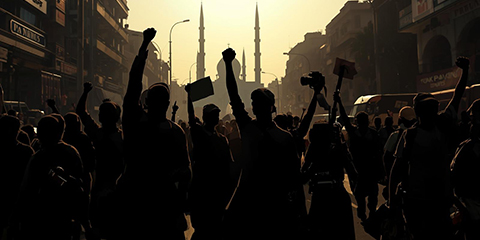Contrasting paths: White House welcomes digital media, Pakistan crushes it
JournalismPakistan.com | Published 10 months ago | JP Staff Report
Join our WhatsApp channel
ISLAMABAD—As the Trump Administration opens doors to new media by inviting podcasters, social media influencers, and independent journalists into the White House press briefing room, Pakistan is moving in the opposite direction—tightening its grip on digital media through draconian amendments to the Prevention of Electronic Crimes Act (PECA), silencing dissenting voices, and ensuring that only state-approved narratives dominate public discourse.
The stark contrast highlights a growing divide: while the US acknowledges the shifting media landscape and expands press access, Pakistan is intensifying censorship, leaving independent journalism suffocated under the weight of authoritarian control.
Trump’s Open Door vs. Pakistan’s Crackdown
At 27 years old, Karoline Leavitt, the youngest White House Press Secretary in history, has recognized the power of digital media. She has introduced a system where independent journalists, bloggers, and social media influencers can apply for White House press credentials, ensuring broader representation in the press corps.
Leavitt’s statement—"It is crucial to adapt to the evolving media landscape and ensure the President’s message reaches Americans through platforms they trust"—underscores an effort to modernize press relations and acknowledge that traditional television and print media no longer hold a monopoly over news consumption.
In contrast, Pakistan’s ruling elite refuses to acknowledge this shift. Rather than adapting, the government has chosen to suppress digital media by expanding the PECA law—a controversial cybercrime act that targets journalists, activists, and online critics. Amendments to the law now criminalize dissent even further, making social media platforms dangerous spaces for truth-tellers.
Pakistan’s Independent Journalists in Exile
While Leavitt invites new media into the White House briefing room, Pakistan's independent journalists are being pushed out of the country altogether. Many of the country's most outspoken journalists now live in exile, having fled threats, violence, enforced disappearances, and draconian legal cases.
Several Pakistani journalists now navigate foreign lands, using online platforms to report on Pakistan’s realities, despite constant threats from state-backed cyber armies.
"In Pakistan, journalism is a crime," one exiled journalist remarked, highlighting the ever-growing list of reporters who have faced kidnappings, physical assaults, and charges for simply doing their job.
Legacy Media: A Tool
Traditional Pakistani media—once a fierce defender of press freedom—has been co-opted or intimidated into silence. Newsrooms operate under self-censorship, avoiding coverage of politically sensitive issues. Journalists are ‘advised’ on what to report and what to ignore—with repercussions for defying orders.
TV anchors toe the establishment’s line—or risk losing their platforms altogether.
With legacy media compromised, digital media emerged as the last frontier for truth—only to be met with brutal suppression under PECA’s amendments and intensified surveillance of online discourse.
Mushahid Hussain Sayed Weighs In
Journalist and politician Mushahid Hussain Sayed took to social media to highlight the stark contrast between the two countries, tweeting:
"President @realDonaldTrump is media-savvy, moving with changing times: Impressive first press briefing by his new (youngest) Press Secretary, 27-year-old Karoline Leavitt, who’s allowed New Media: digital media, YouTubers, podcasters, into the White House Press Room, unlike Pakistan, where officialdom is still stuck with Traditional Media, despite it being outdated, while New Media, which is popular, is suppressed!"
His statement underscores the backward trajectory of Pakistan’s media policies, where officialdom remains trapped in the past, while the world moves forward.
The Battle for Truth Continues
While the White House embraces the future of journalism, Pakistan continues to weaponize laws against it. The suppression of digital media is a calculated move to ensure that only state-approved narratives prevail—but the truth remains resilient, carried forward by exiled journalists, underground platforms, and social media dissidents.
The question remains: will Pakistan ever recognize digital media as a legitimate force—or continue its descent into censorship and control?

























